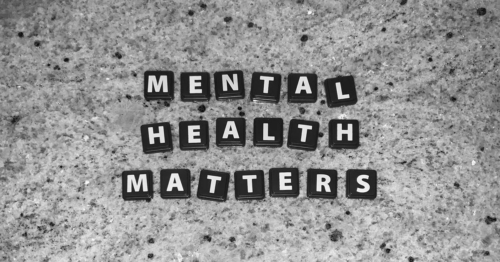
Table of Contents
5 Mental Health Red Flags in Teens and Adolescents

Written By: Alex Bachert, MPH

Clinically Reviewed By: Dr. Don Gasparini
Updated: May 20, 2024
4 min.
These warning signs may signal that the teen or young adult in your life is struggling with their mental health.
Learn more about our Clinical Review Process
Table of Contents
Mental health conditions are increasingly common among young people. Research shows that one in three adolescents will experience an anxiety disorder in their life, and one in five teenagers face a major depressive episode annually. The U.S. Surgeon General has repeatedly called the youth mental health crisis a leading public health crisis nationally. However, mental health conditions manifest differently from person to person, making them challenging to spot and diagnose.
So, how can you help protect and prioritize your teen’s mental health? One way is to know how to recognize the potential warning signs. Below, we delve into teenage behaviors that may signal a mental health problem and explore treatment options to support teen mental health.

We help young people improve their mental health
Intensive virtual therapy for teens and adolescents.
5 mental health red flags
According to the Diagnostic and Statistical Manual of Mental Disorders (DSM-5), there are nearly 300 types of mental illness, and each differs in signs, symptoms, and severity. This can make it tricky to spot a mental health condition, especially during the teenage years when people naturally start to change and push boundaries.
That said, there are several red flags that suggest that a person might be struggling with their mental health and well-being. In fact, many warning signs relate to activities of daily living — defined as basic tasks that most young, healthy people can perform without any struggle or assistance. Here are some common mental health red flags to look out for in young people.
1. Avoiding friends, family, or social activities
Social isolation can be voluntary or involuntary, short-term or long-term, but it’s important to note that the longer it lasts, the harder it can be to overcome. Why does it matter? Well, research shows a strong link between social isolation and an increased likelihood of anxiety and depression in both children and adolescents. If your child starts to avoid their friends or activities that used to bring them joy, it may be a symptom that they are struggling with anxiety, depression, low self-esteem, or another mental health issue.
2. A change in grooming habits
For people who are suffering from a mental illness like anxiety or depression, even the most routine tasks can seem overwhelming. Maybe you forget to brush your teeth in the morning, or you’re struggling to shower on a regular basis. Or you’re still showering, but you’ve abandoned habits that used to help you feel your best (think: painting your nails or trimming your beard).
People living with obsessive-compulsive disorder (OCD) — a chronic condition defined by unwanted and recurring thoughts (obsessions) that cause people to engage in repetitive behaviors (compulsions) — might experience the opposite problem. Specific OCD symptoms vary from person to person, but some of the most common obsessions and compulsions among children and teens involve repetitive thoughts and actions. This may seem harmless enough, but OCD might make a person obsessed with precision or body waste, which can cause compulsions like excessive hand washing, showering, and teeth brushing.
3. A change in appetite
Stressed, sad, lonely, bored — for some people, an increased appetite suggests that they might be “eating their feelings” as a way to cope with what’s on their mind. For others, it’s actually a lack of appetite that is a sign of mental health struggles. Not all changes in appetite are problematic. Maybe your teen is going through a growth spurt or just not hungry, but if they’re also exhibiting symptoms such as sadness, changes in sleep, or loss of interest in friends, then it may be worth discussing their health and wellbeing.

How to Talk to Your Teen About Mental Health Challenges: 4 Easy Steps
Charlie Health Editorial Team
4. Feeling fatigued or having trouble sleeping
Similar to eating habits, changes in sleep habits can be a sign that someone is struggling with their mental health. Sudden insomnia, too many naps, or not wanting to get out of bed may represent a bigger issue. Insufficient sleep is associated with an increased risk of accidents, depression, and risk of self-harm, suicidal thoughts, and suicide attempts, according to the American Academy of Sleep Medicine. So, what’s an appropriate amount of sleep for a teenager? Experts suggest that teenagers (ages 13-18) sleep eight to 10 hours per night.
5. Smoking, drinking, or using drugs in excess
Pushing boundaries and taking risks is normal teenage behavior. For some teens, this means experimenting with drugs and alcohol. However, what might start off as a single beer at a party can easily turn into a coping method for negative thoughts, stress, anxiety, and hopelessness — at which point it’s turned into a mental health problem.
The relationship between substance use and mental health is bi-directional, meaning both factors can influence each other. The long-term effects of alcohol can cause serious mental health problems, especially for those who are living with a pre-existing mental health condition. Research shows that excessive alcohol use is linked to a variety of mental health issues, from depressive disorders to an increased risk of suicide.

How Charlie Health can help
If a young adult in your life is struggling with their mental health, Charlie Health is here to help. Charlie Health’s virtual Intensive Outpatient Program (IOP) provides more than once-weekly mental health treatment for young people and families dealing with serious mental health conditions. Our expert clinicians incorporate evidence-based therapies into individual counseling, family therapy, and group sessions. With this kind of holistic treatment, managing your mental health is possible. Fill out the form below or give us a call to start healing today.
References
https://www.ncbi.nlm.nih.gov/pmc/articles/PMC2872355/
https://americanaddictioncenters.org/alcohol/risks-effects-dangers/depression
https://www.ncbi.nlm.nih.gov/pmc/articles/PMC5078711/
https://www.ncbi.nlm.nih.gov/pmc/articles/PMC8543788/
https://www.ncbi.nlm.nih.gov/books/NBK470404/
https://www.psychiatry.org/psychiatrists/practice/dsm
https://www.nimh.nih.gov/health/statistics/major-depression
https://www.nimh.nih.gov/health/statistics/any-anxiety-disorder#part_155096




